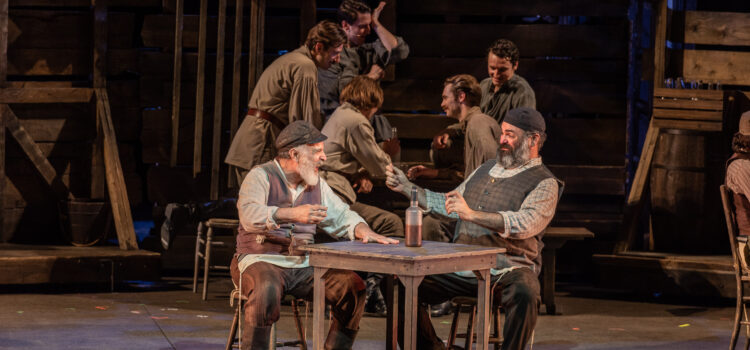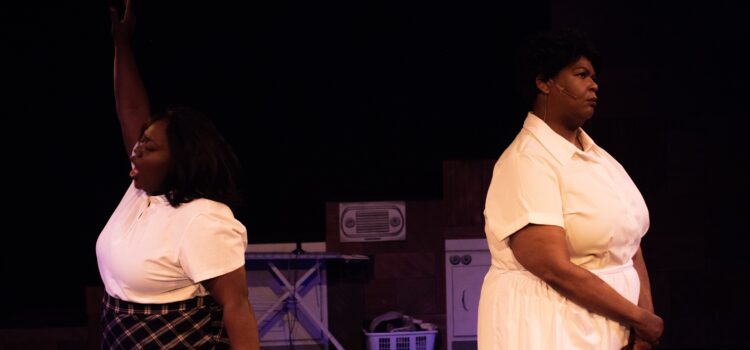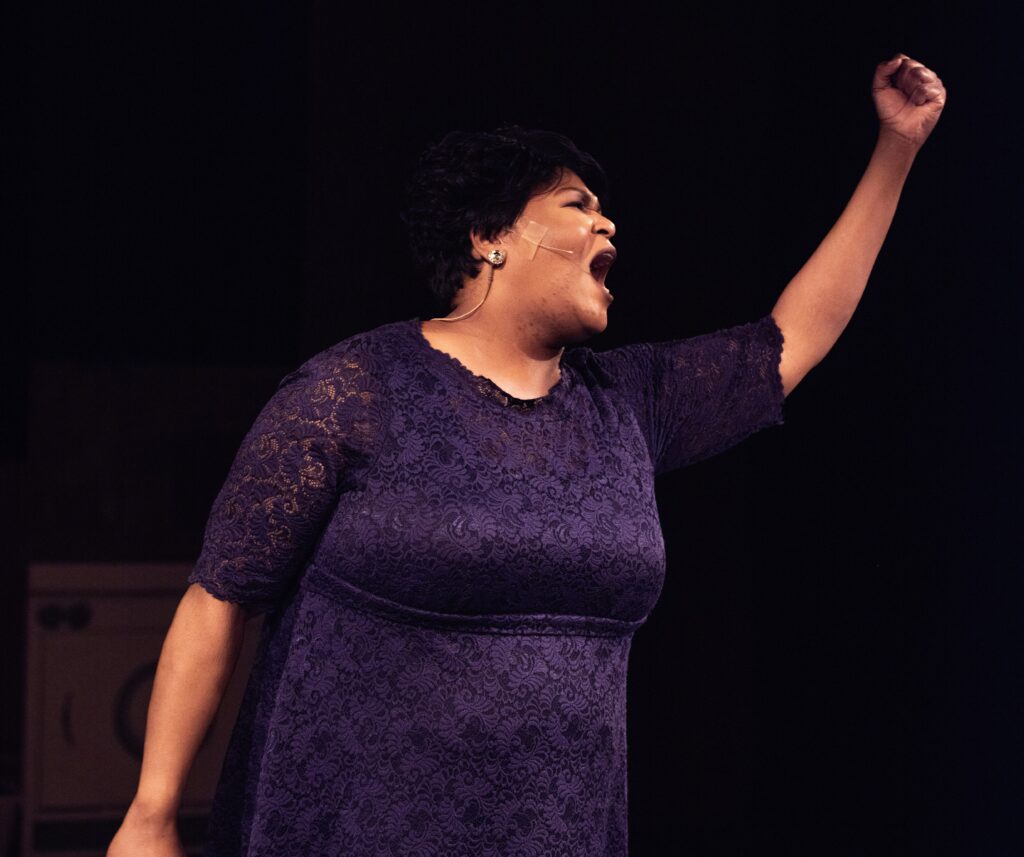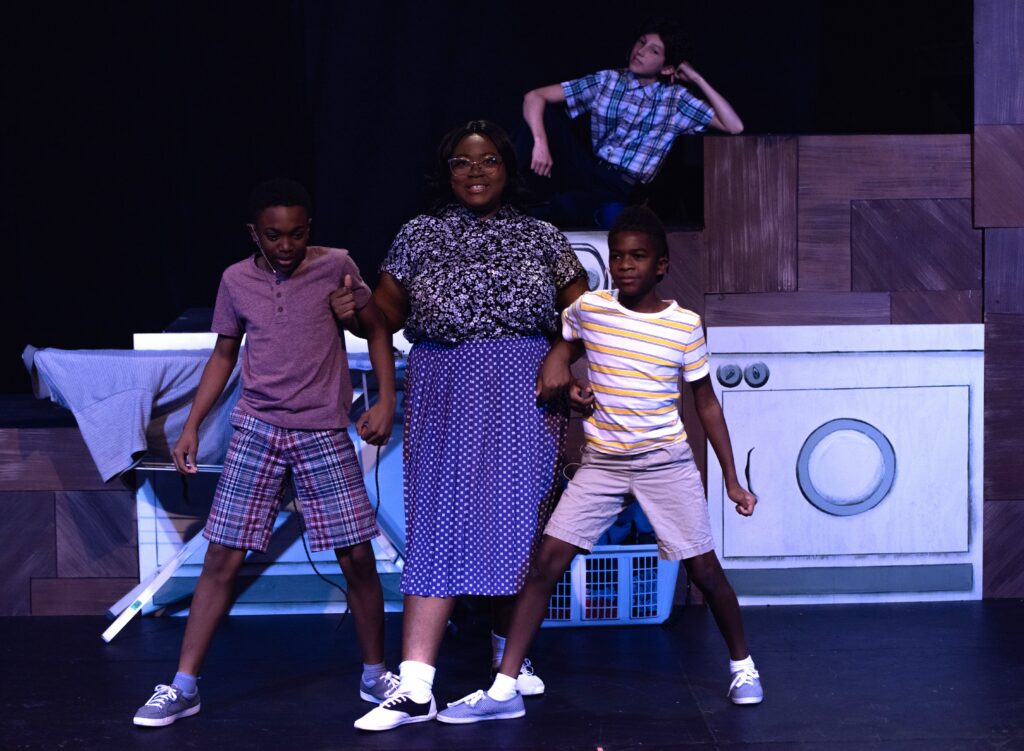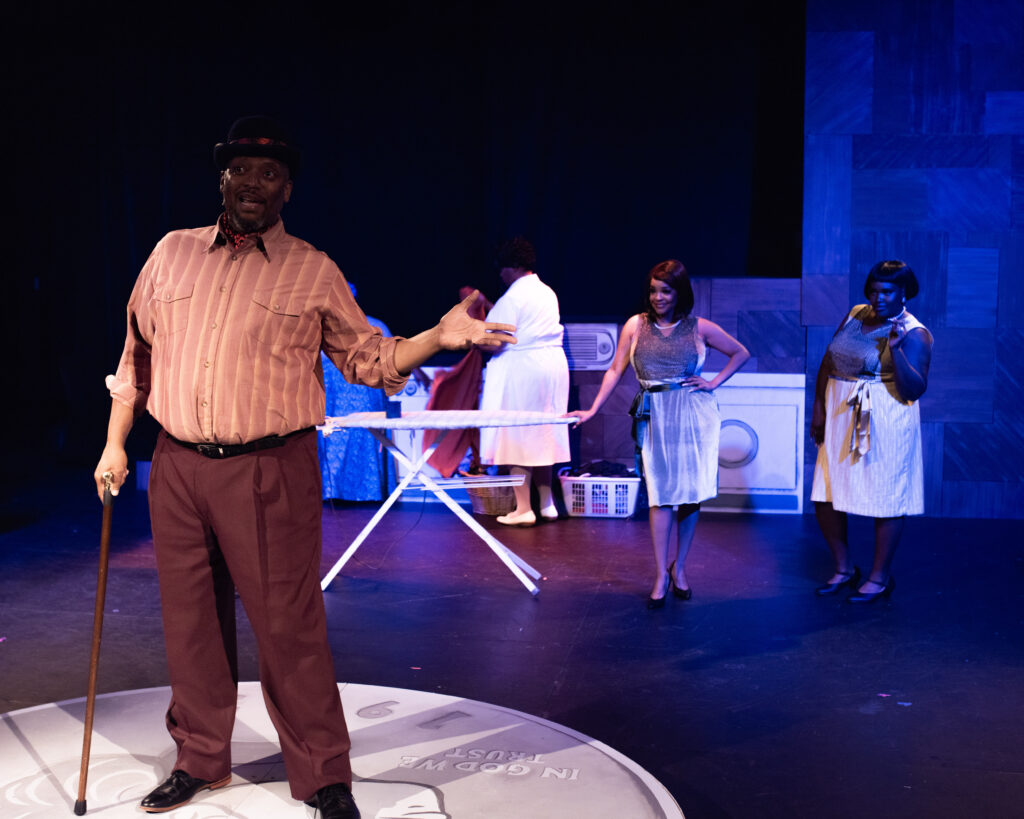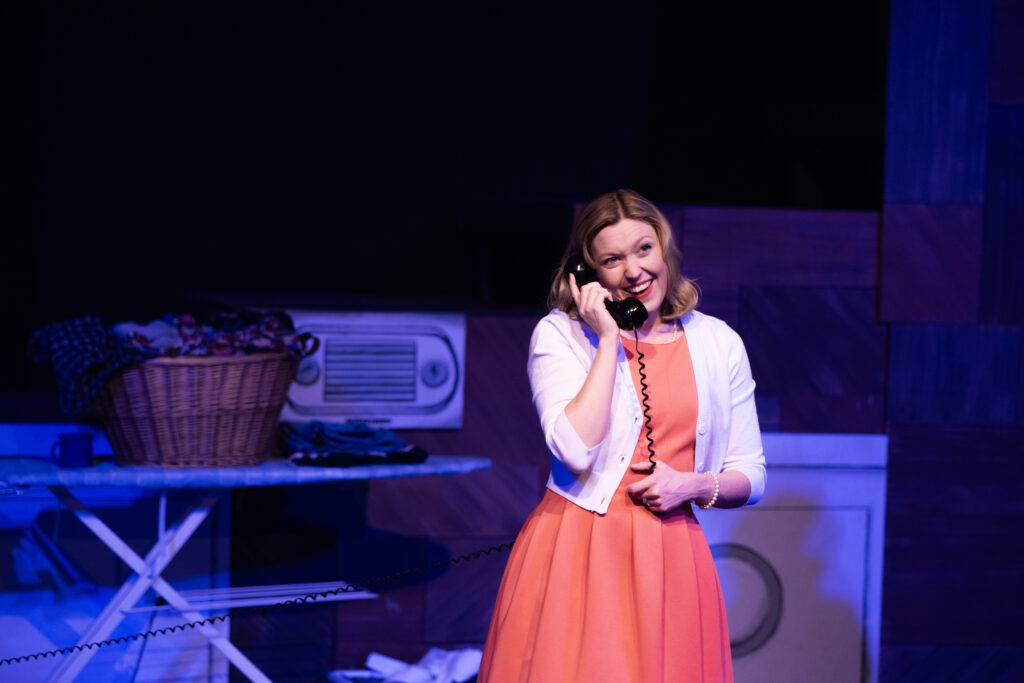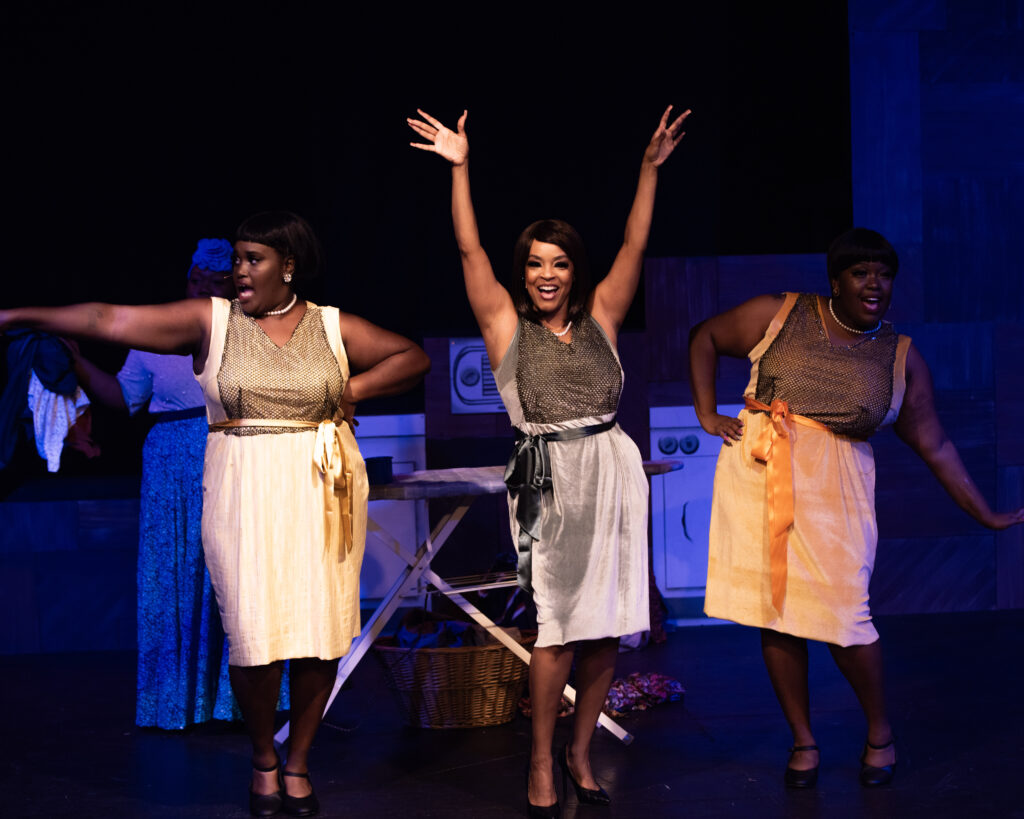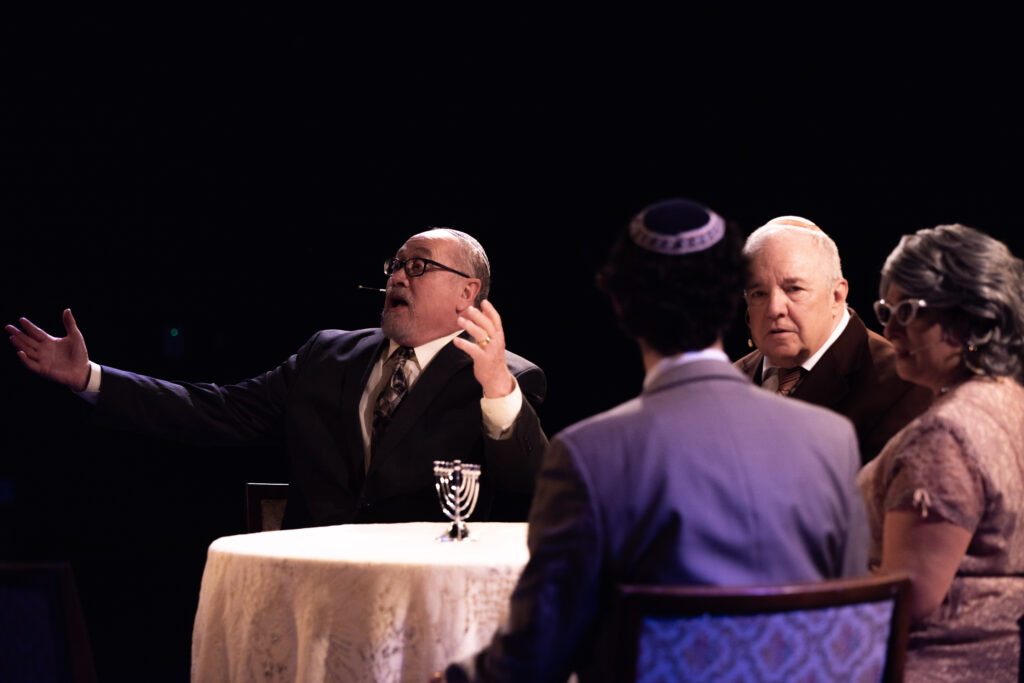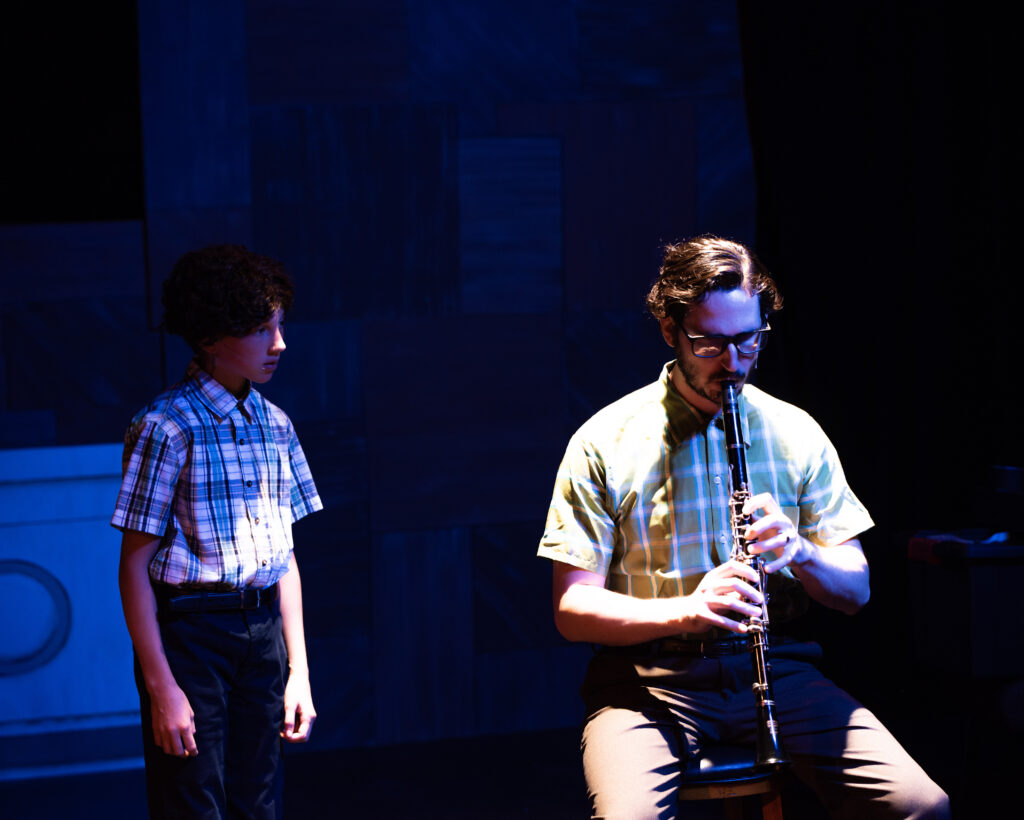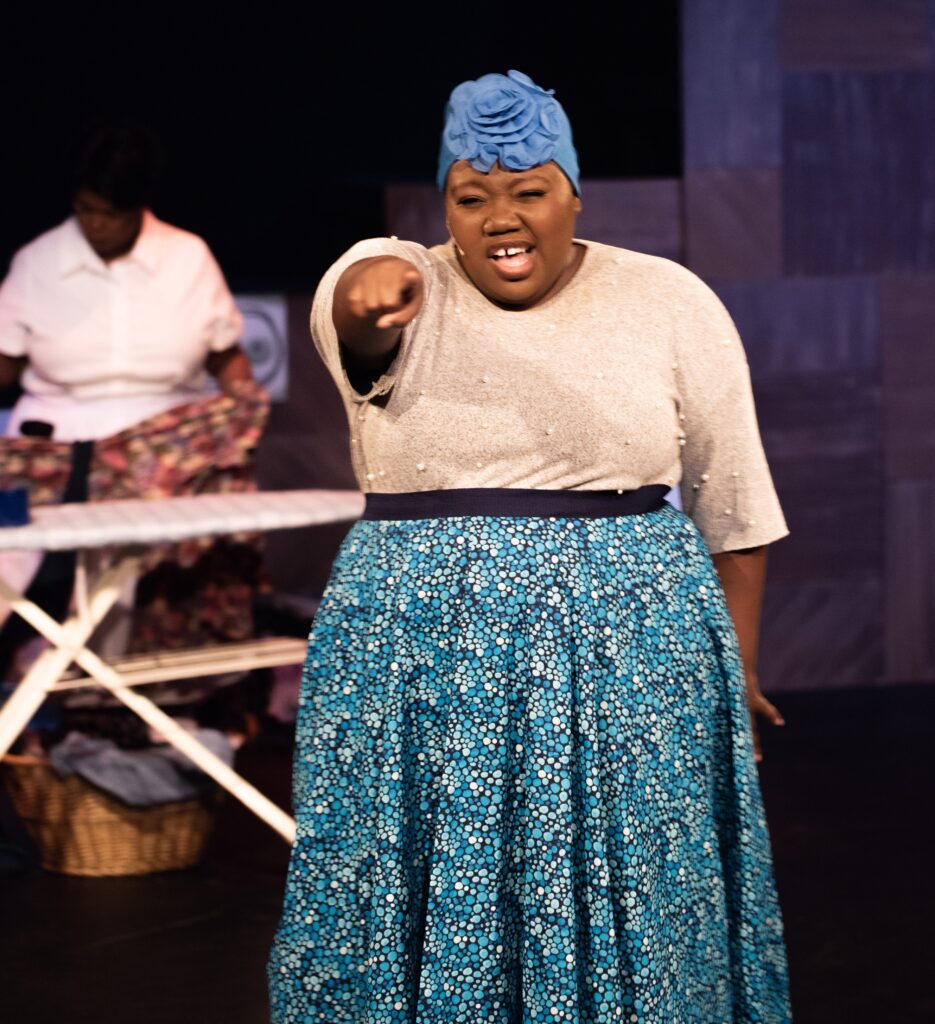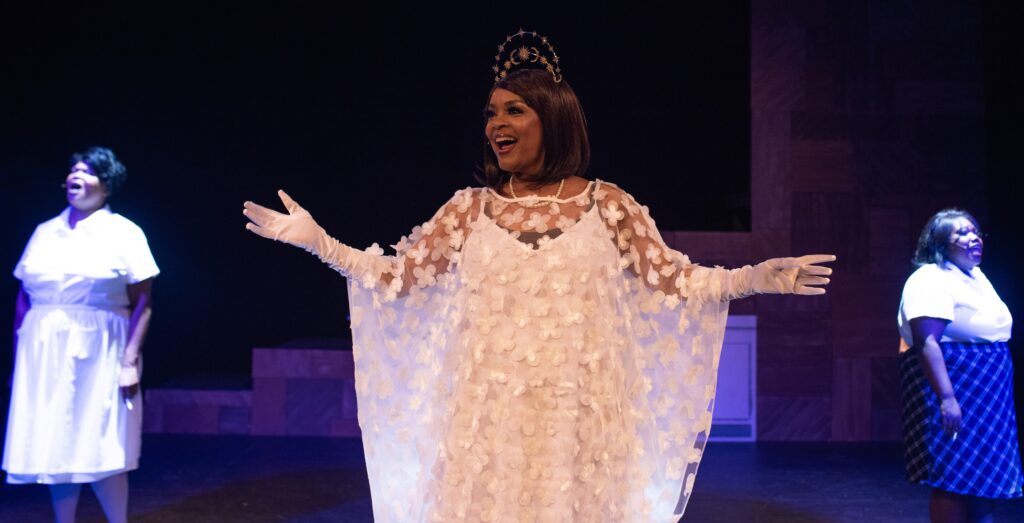By Lynn Venhaus
The Muny’s warm, wondrous and deeply affecting production of “Fiddler on the Roof” grabs your heart from the moment you hear a solo violin when an invigorated Adam Heller makes his entrance as Tevye and never lets us go.
An emotional powerhouse, this cherished musical premiered on Broadway 60 years ago, and remains beguiling with its universal story of faith and family that is both timeless and timely.
Since 1970, the Muny has staged this favorite 11 times, and while I haven’t been to all of them, I count at least six, and the current run will stand the test of time as one of its most uplifting and heartfelt.
This “Fiddler” is distinguished by an extraordinary ensemble, electrifying dance, life-affirming music, tender story and illustrious creative team.
With its everlasting theme of how our shared humanity unites us all, at this perilous time of oppression, tyranny and increased anti-Semitic hate crimes around the world, this version hits close to home.
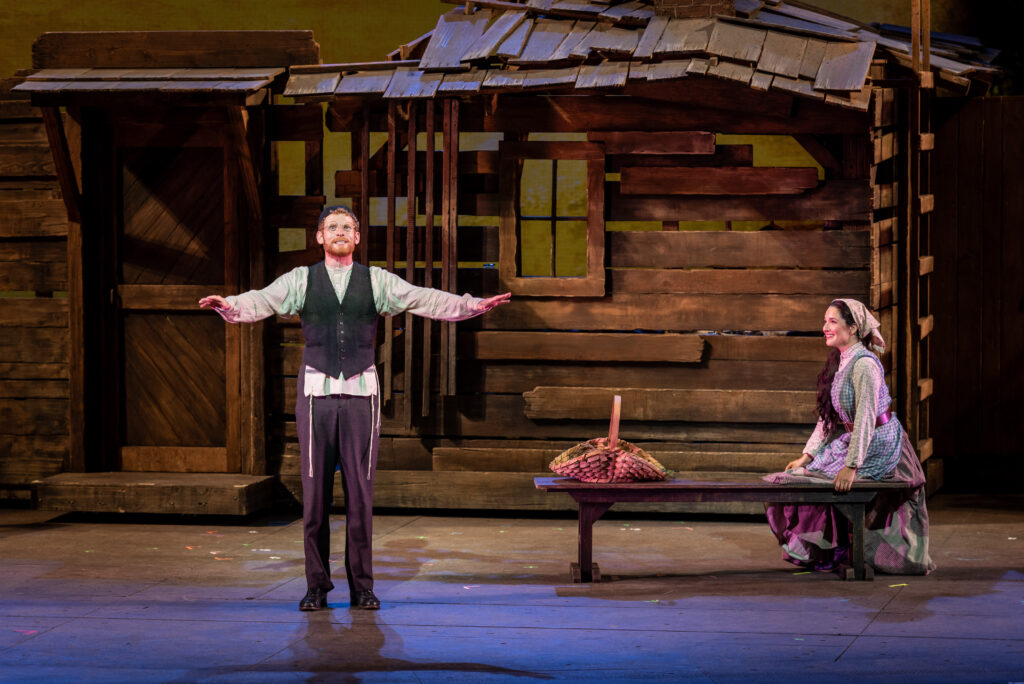
We are reminded why this resplendent musical not only has endured, but how it endears to new generations. The cultural heritage is emphasized in the book by Joseph Stein, and the sumptuous music by Jerry Bock and ardent lyrics by Sheldon Harnick indicate resilience, compassion, love and community.
Set in imperial Russia around 1905, the Jewish village of Anatevka is where Tevye the dairyman, his wife Golde and his five daughters live, and the show is based on tales in Yiddish by Sholem Aleichem.
Tevye values “the old ways” but is tested when his children want to pursue their own definition of happiness, and they confound him with their modern views on love and marriage.
Forced to deal with change while unsettling times are at hand, he and his family must seek new homes after being evicted by the czar’s edict, as the country is on the brink of revolution.
What parent doesn’t tear-up relating to “Sunrise, Sunset” or feel the palpable joy of Motel the Tailor (a sublime Max Chernin) in “Miracle of Miracles”? Who doesn’t have a big grin watching The Dream Sequence or the Wedding celebration?
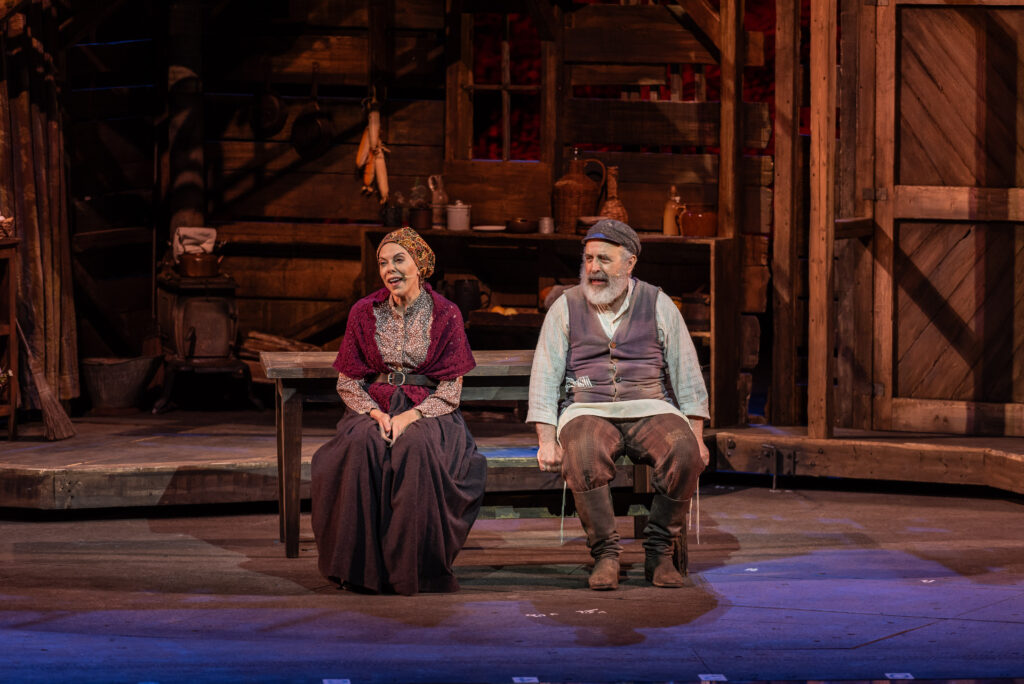
The second act songs always tug at my heartstrings – starting with Perchik’s elation “Now I Have Everything,” the touching Tevye-Golde duet “Do You Love Me?” and Hodel’s agonizing “Far from the Home I Love.” I started blubbering during the heartbreaking Chava sequence and tears continued to flow through the mournful “Anatevka” and that gut-wrenching exodus. That finale is eerily common in parts of the world today.
The plight of people making do, and that needing to belong, is part of this show’s appeal, and with hostile world conflicts heavy on our minds, the feelings well up automatically.
The casting is faultless, and to date this season, has been impeccable, so bravo, Michael Baxter, associate artistic director, for his guidance and instinctual eye.
Adam Heller is revelatory as Tevye. Oh, sure, Muny audiences love him – he was a dandy Herbie to his wife Beth Leavel’s Mama Rose in “Gypsy” in 2018 and St. Louis Theater Circle Award winner for his supporting performance as cuckolded husband Amos in “Chicago” in 2021. But here, he commands the stage as the larger-than-life lead, and is high-powered in song, dance and spirited line delivery. His comic timing is ideal.
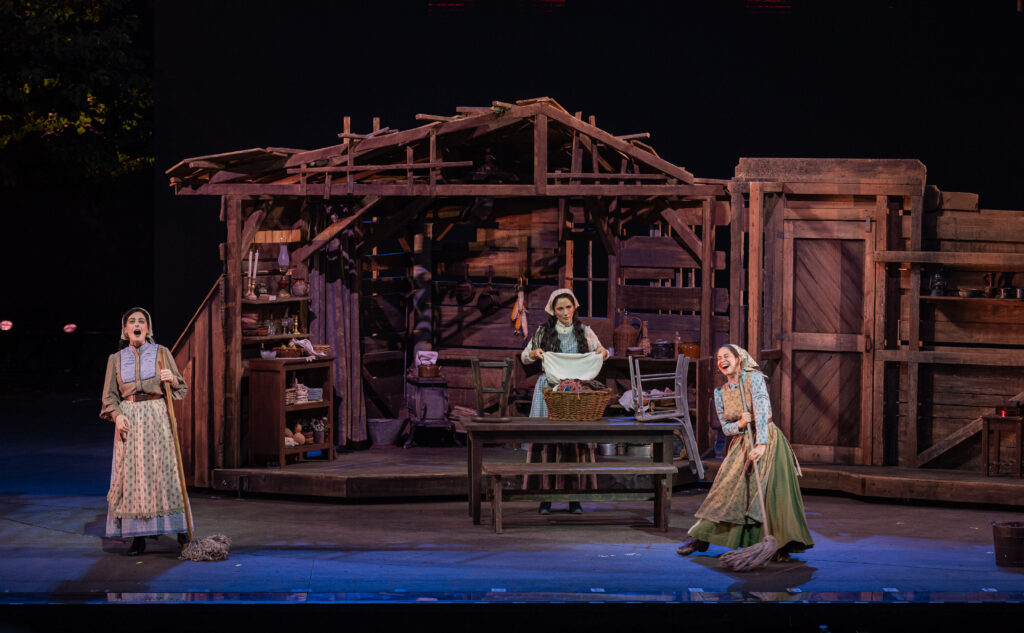
Jill Abramovitz is a feisty foil as his hard-working wife Golde and holds her own as Heller’s scene partner. Her howl of pain at Chava’s rebellion and Tevye’s reaction pierces your heart.
Samantha Massell excels as dutiful eldest daughter Tzeitel who must challenge the rules for love, taking a big risk. She played Hodel in the most recent Broadway revival and is genuine in portraying these sisters changing their times. She has appeared in nine shows at the Muny, and these are her finest moments to date. She superbly layers Tzeitel’s hopes so that you feel her connections to her family and the love of her life.
Massell leads a delightful “Matchmaker,” and Hannah Corneau, as a fiery and devoted Hodel, and Emerson Glick, as a smart and caring Chava, demonstrate their bright vocal strengths as well. The trio add oomph to these women as they are adamant about their choices.
The family scene in “Sabbath Prayer” is poignantly staged, and the sweet younger daughters are played with relish by Ellie Schwartz (Shprintze) and Zoe Klevorn (Bielke).
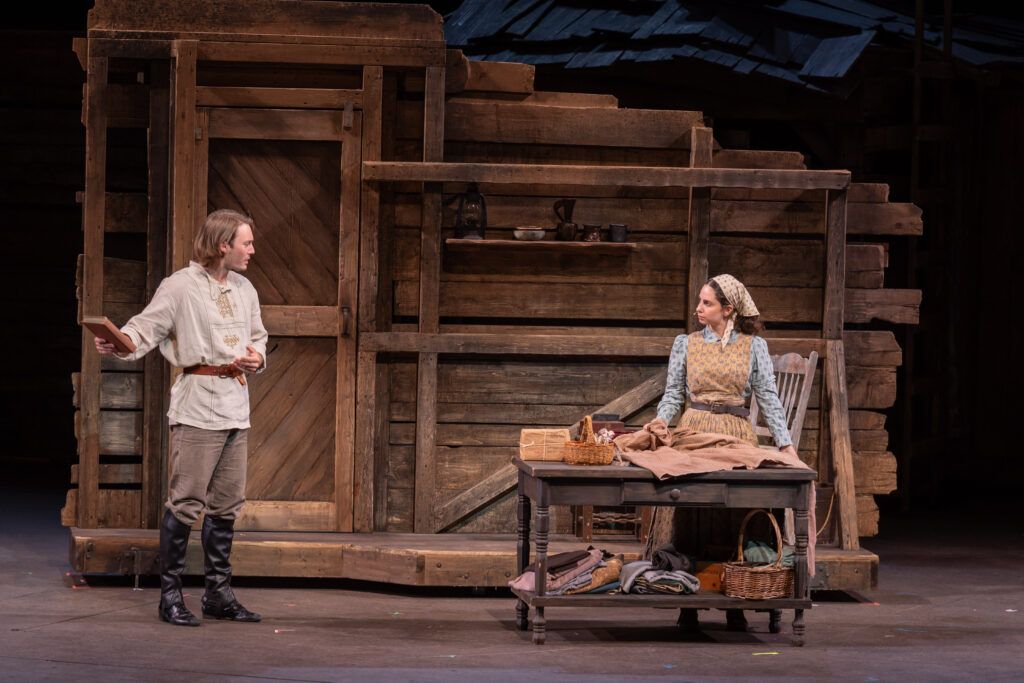
The eldest daughters’ life partners are terrific matches, too –besides Chernin as lovable Motel, Clay Singer is engaging as the fervid radical Perchik, and so is Andrew Alstat as the kind Russian soldier Fyedka. The men demonstrate they are skilled dancers as well.
Adding to the colorful cadre of villagers are Jeremy Radin as gruff butcher Lazar Wolf – outstanding in “To Life!”, Cheryl Stern hilarious as busybody Yente, Bob Amaral amusing as the respected Rabbi, and Zoe Vonder Haar as Motel’s mother Shaindel.
Susan J. Jacks and Blair Goldberg are quite a dynamic duo as Grandma Tzeitel and Fruma-Sarah in the Dream, always a highlight.
Max Chucker is a splendid Fiddler, and Jim Butz is imposing as a Russian constable, sympathetic to a certain extent.
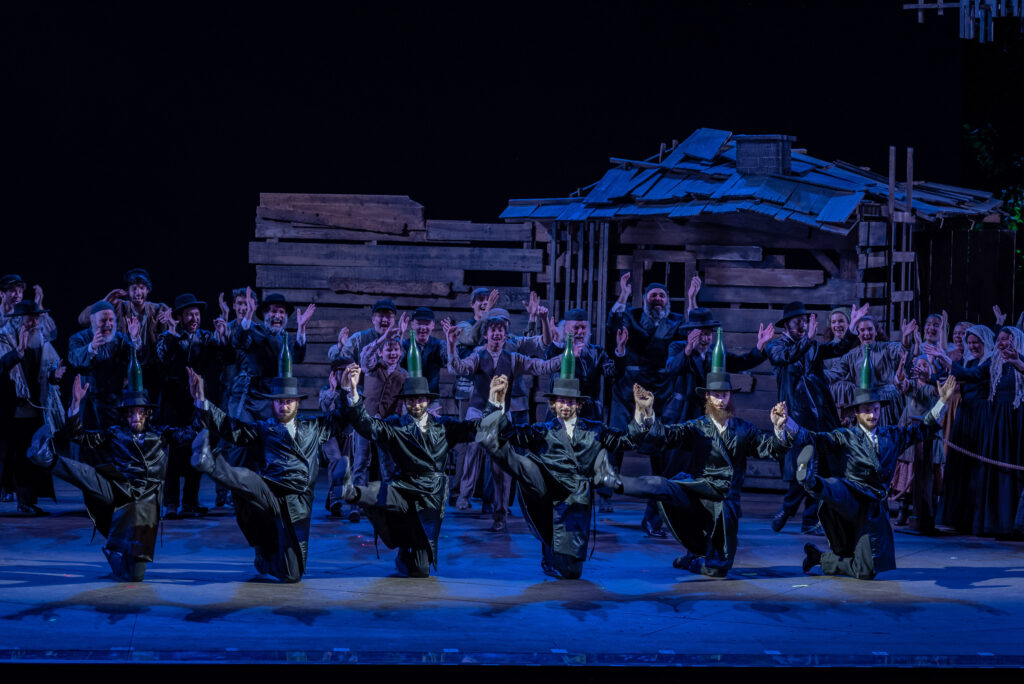
Bottle Dancers Ze’ev Barmor, Michael Bullard, Derek Ege, Michal Kolaczkowski, Nick Nazzard and Nick Raynor deliver a sensational crowd-pleaser during the festive wedding, and Bullard, Kolaczkowski and Raynor, along with Jonathan Bryant, are equally muscular in the Russian dance portion of “To Life!”
Of special note for this production is the fine work by fight choreographer Bart Williams, who worked on last season’s “West Side Story,” “Little Shop of Horrors” and Disney’s “Beauty and the Beast,” and the contributions of dialect and culture coach Barrie Kreinik, who was also in the ensemble and one of the solos in “The Rumor” gossip song.
The musical is so well-constructed that there isn’t a wasted song or a moment, not a false move. Director Rob Ruggiero, a master at deconstructing classic musicals, injects this version with a fresh outlook and renewed vigor.
Through his many shows in St. Louis, at both the Muny (“Sweeney Todd,” “West Side Story,” “Gypsy,” “Hello, Dolly!”, “South Pacific,” and “Oklahoma!” and others), and the Repertory Theatre of St. Louis (“Follies,” “Sunday in the Park with George” and “Evita” – St. Louis Theater Circle Awards for directing) his commitment to artistic excellence never wavers nor does his belief in the transformative power of the arts.
His expert touch is evident here, for every facet is a polished gem and seamless in its execution.
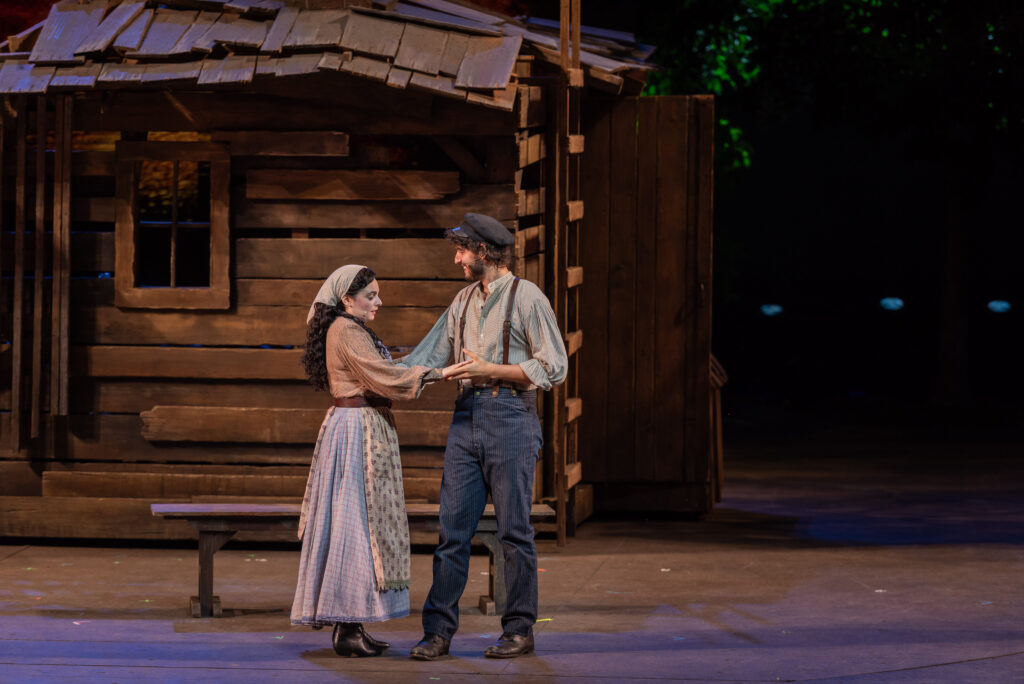
In his Muny debut, music director Darryl Archibald flawlessly conducts a robust 32-piece Muny orchestra, bringing out the score’s lush textures and punctuating the lovely, lyrical songs.
Noteworthy are concertmaster Tova Braitberg and eight violinists, who are exquisite in delivering every emotional beat, aided by three cellos, bass and a harp. (And of course, the gorgeous sounds blending woodwinds, trumpets, French horns, percussion, guitar, bassoon, flute, piccolo, clarinet, and drums.)
The exuberant and athletic choreography, based on the original 1964 work by Jerome Robbins, his final musical theater dance for Broadway, has been adapted for the Muny stage by Parker Esse, who did the same thing for the Muny’s transcendent “West Side Story” last year.
The creative team must be lauded for their efforts. The sparse effective set design by Tijana Bjelajac is a marvel of smooth flow, and striking atmosphere.
The layered Eastern European peasant looks of award-winning costume designer Alejo Vietti differentiates each character and captures the turn-of-the-century period and culture perfectly, as does Tommy Kurzman’s wig design.
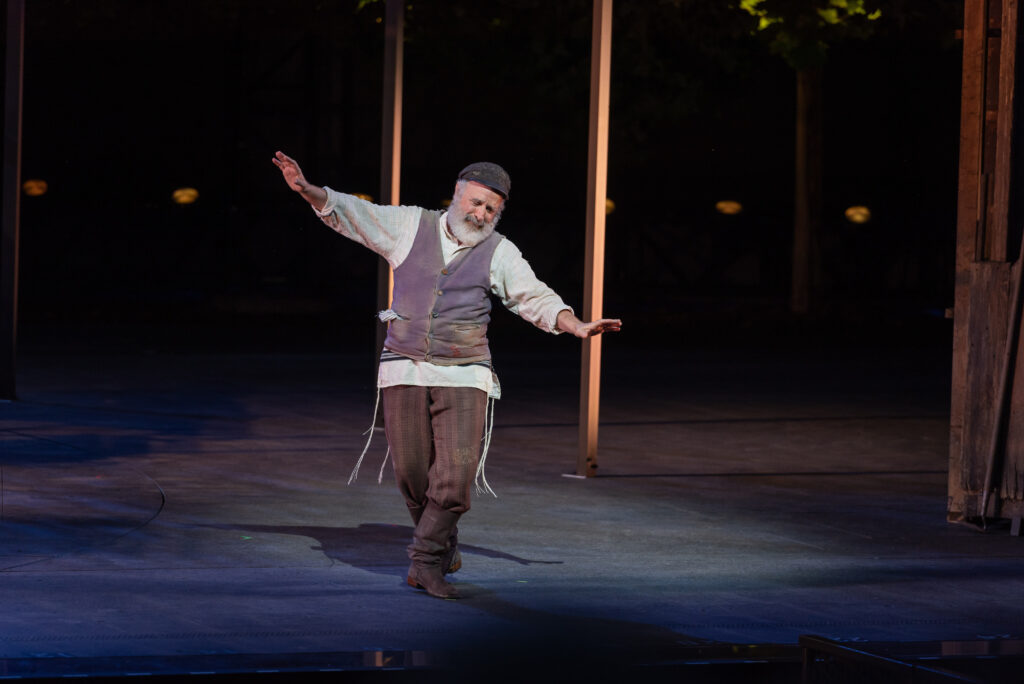
The lighting design by John Lasiter is crisp in definition, meticulously shifting Tevye’s inner thoughts and the show’s swift mood changes. The Dream sequence is particularly striking, and Kevan Loney’s creative video design adds a spooky element to ‘the nightmare.’. John Shivers and David Patridge’s sound design is immaculate.
The original Broadway production in 1964 was the first musical to surpass 3,000 performances and held the record for the longest-running musical on Broadway for nearly 10 years until “Grease” took over. Today, it is ranked 18th, with “The Phantom of the Opera,” “Chicago,” “The Lion King,” “Wicked” and “Cats” the top five.
Winner of nine Tony Awards in 1965, including best musical, score, book, direction and choreography, it has been revived five times – won a Tony for the 1990 revival starring Chaim Topol, who also starred in the critically acclaimed 1971 film that is known as one of the best musical-to-movie adaptations. The most recent triumph was a 2015 production starring Danny Burstein and directed by Bartlett Sher.
“Fiddler on the Roof” retains its zest, sincerity, charm and abundance of heart that made us fall in love with it the first time. There are moments that take your breath away. Did I mention how funny it is? It is one of those ‘forever Muny shows’ that is welcome any time, but chillingly relevant this summer.
Go. See. Enjoy. Now! (And bring tissues).
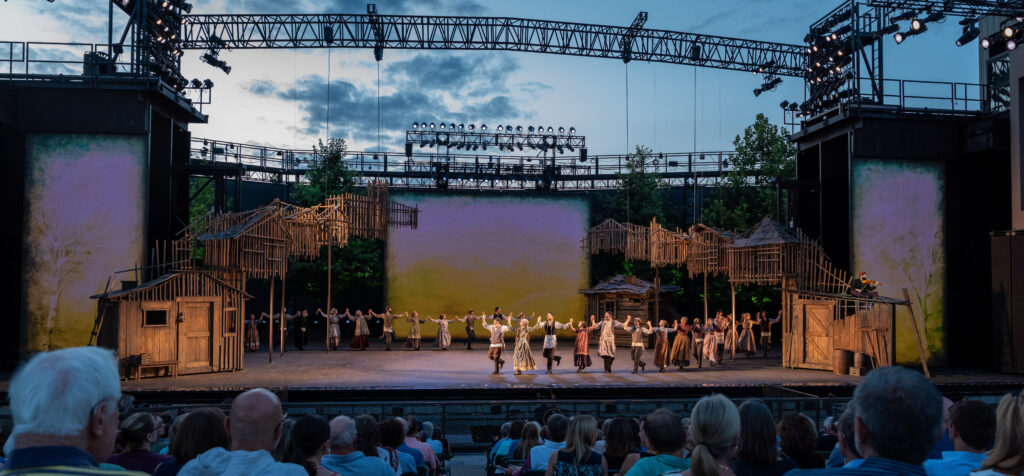
The Muny presents “Fiddler on the Roof” from July 19 – 25 nightly at 8:15 p.m. at the outdoor stage in Forest Park. The production is 2 hours, 45 minutes, with a 15 minute intermission. For more information and tickets, visit www.muny.org.
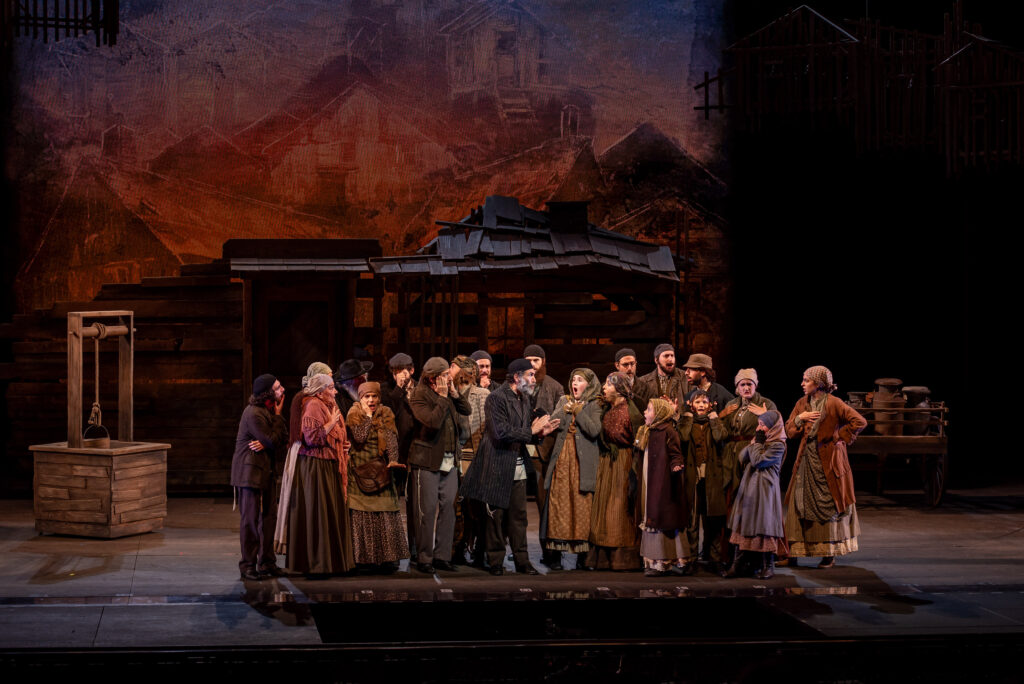

Lynn (Zipfel) Venhaus has had a continuous byline in St. Louis metro region publications since 1978. She writes features and news for Belleville News-Democrat and contributes to St. Louis magazine and other publications.
She is a Rotten Tomatoes-approved film critic, currently reviews films for Webster-Kirkwood Times and KTRS Radio, covers entertainment for PopLifeSTL.com and co-hosts podcast PopLifeSTL.com…Presents.
She is a member of Critics Choice Association, where she serves on the women’s and marketing committees; Alliance of Women Film Journalists; and on the board of the St. Louis Film Critics Association. She is a founding and board member of the St. Louis Theater Circle.
She is retired from teaching journalism/media as an adjunct college instructor.

